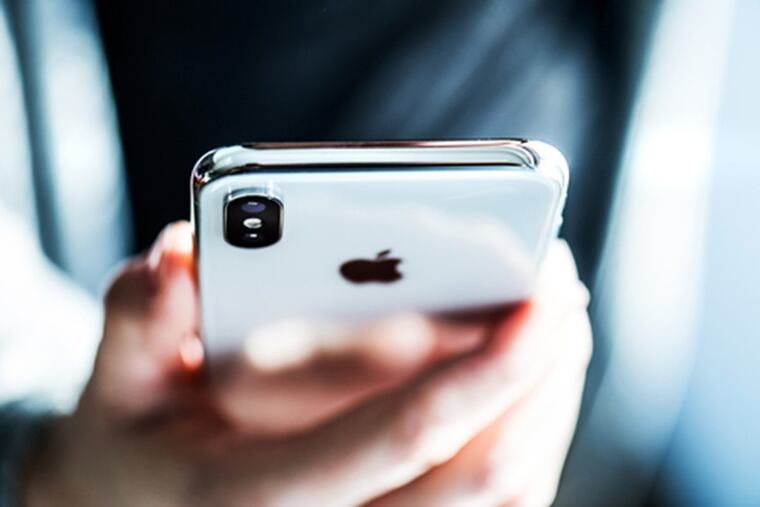Where have all the musical ringtones gone?
Musical ringtones, those sonic signifiers, are increasingly being silenced.

Slide back in time, if you will, to the year 2007. Barack Obama was running for president. Rihanna's "Umbrella" ruled the charts. References from the film Ratatouille had slipped into everyday conversation. Placing a cellphone on a table was compared to marking one's territory. And musical ringtones resounded, marking their owners identity in public spaces.
Little more than a decade later, these sonic signifiers are being increasingly silenced. Recording Industry Association of America sales data shows that ringtones and ringbacks peaked in 2007, when their sales reached $1.1 billion. Last year, these downloads only brought in $34.2 million, a 97 percent dive. The bright, gamer-esque soundscape of polyphonic tones gave way to clips of actual songs, but now both have fallen behind the iPhone's standard "marimba" ring.
And more often, just a buzz is heard.
The Emily Post Institute, in its advice on mobile phone etiquette, recommends that if a cell "must be on," then it really should make no sound. That's Chinatown resident Annie Heckenberger's setting of choice.
There are exceptions. Such as when she's expecting a call. Or when she wants to watch a video on her phone. That has led to moments in meetings when everybody at the table gets to hear "Brass Monkey" by the Beastie Boys.
"It typically is an ice breaker," said Heckenberger, a vice president at the Digitas Health ad agency. While she declined to share her exact age, she acknowledged that her ringtone selection gives her away as someone in her 40s. At first, some colleagues seem startled to hear her signature song's bleating horns. But often there's laughter, she says, or "someone at the table will request to let it play."
To explain the decline of ringtones, experts have pointed to the fall of Nokia and the rise of the iPhone. Holdouts like Heckenberger say that ordinary sounds are missed opportunities.
Linwood Harris would prefer that his phone stand out in a crowded room. The 64-year-old used to have Al Pacino shouting "Say 'hello' to my little friend!" the iconic salutation from "Scarface" on a loop as his ringtone, but he got tired of the screaming.
"When you have the right one, it's kind of soothing," the retired assistant principal and Cheltenham resident said. Now, when someone's calling, it's to Sade's "Smooth Operator."
Kevin Wilson, a 36-year-old beer sales rep, sat down and made a spreadsheet for his ringtones around 10 years ago. He picked tunes for each of two dozen or so friends, basing his choices on titles with their names in them, or theme songs from shows they loved, or pieces that reminded him of them for some reason.
Things have changed. For his college friends, the Penn State fight song sounds. Most other folks get his default ring, which the Havertown resident changed this month to the theme song from Magnum P.I. He can't get enough of it — even when he sees that it's a spam call coming in, "I just let it ring now because it's a song I like."
Sumanth Gopinath, the author of The Ringtone Dialectic: Economy and Cultural Form, said 30-second ringtones should be seen as compositions in their own right. There was a span of time, in the mid-to-late 2000s, when phone rings would influence the digital tonality of beats for rappers like Soulja Boy and J-Kwon, whose songs would then become ringtones themselves. The moment burned brightly with the clacks of flip phones and the snaps of fingertips. But hip hop moved on; Jay Z called for the death of that rap era; T-Pain, once called the king of ringtones, grappled with sudden, widespread mockery.
Preloaded rings offer a mellower tintinnabulation, but those sounds are often silenced too. Along with the notions that loud rings equal poor manners, researchers have argued that even lighter beeps and vibrations can disrupt and distract, curtailing one's productivity.
Those who cling to musical ringtones might be appreciative of not only their sound, but what they say about their chooser. In 2010, researchers at the University of Utrecht evaluated ringtones for the cultural power. Cell phones, they wrote, were a vessel for personal identity, from style choices on the hardware to the communication preferences of the user. A ringtone, they argued, could transmit shards of memory or reveal subculture.
Imar de Vries, one of the paper's coauthors, revisited the topic in an email recently. "Media nostalgia is a common sentiment that can be discerned throughout media history," de Vries wrote. "And today also an important element in, again, identity branding." Musical ringtones, so it goes, are another means to announce who you are.
In ringtones, Heckenberger hears humor. "Other people I know have songs as ringtones, but I think it's more of like a punchline," she said, before sharing that she has "a friend whose ringtone is 'My milkshake brings all the boys to the yard,' so it's kind of funny."
She texted this friend to see if she'd be down for an interview. But the woman doesn't use the Kelis song, or any song, for her ringtone anymore. This made Heckenberger wonder aloud if she was one of the last devotees of a dying art form.
"I don't know," she said. "I guess I'm a creature of habit. Now, if ["Brass Monkey"] comes on Spotify, I think it's my phone."